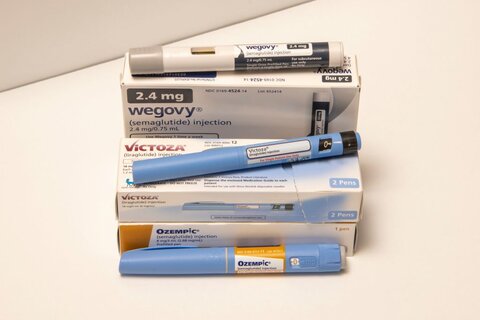Patients taking popular GLP‑1 drugs like Ozempic and Wegovy could face higher costs as new tariffs hit European-made branded medicines under the free trade agreement between the US and the European Union, which was announced last week.
As I explained here, under the framework trade agreement between the United States and the European Union, generic pharmaceuticals and active pharmaceutical ingredients (APIs) imported from Europe will stay tariff-free. However, American consumers will face a 15 percent tariff on branded finished pharmaceutical products from Europe. Novo Nordisk produces its brands of the patented GLP‑1 semaglutide, Ozempic and Wegovy, at plants in its home country of Denmark.
Under the World Trade Organization’s Agreement on Trade in Pharmaceutical Products, both branded and generic pharmaceuticals, including APIs, are exempt from tariffs. Technically, the US is violating the agreement by requiring consumers to pay tariffs on branded drugs. The Trump administration is citing national security concerns to justify using a provision in the agreement that allows for exemptions on that basis. EU negotiators have been opposing the national security argument until now.
Americans may also face tariffs on other GLP‑1 brands. For instance, Eli Lilly produces Mounjaro and Zepbound (brands of the patented GLP‑1 tirzepatide) mainly in Ireland, although some production has shifted to the US.
Americans won’t only face tariffs on GLP-1s. The French pharmaceutical company Sanofi manufactures Lantus and other insulin products in Germany and France. Sanofi also produces Dupixent, an anti-inflammatory biological drug used to treat atopic eczema, eosinophilic asthma, and some forms of COPD in France. The German company Boehringer Ingelheim makes Jardiance exclusively in Germany. Clinicians prescribe it to treat Type 2 diabetes and certain cardiovascular and kidney conditions. It also produces Spiriva, a biologic for asthma and COPD, and Pradaxa, an anticoagulant, solely in Germany. Bayer manufactures the anticoagulant Xarelto in Germany. Merck & Co. mainly produces Keytruda, a leading cancer drug, in Ireland—although some manufacturing has been shifting to the US. Most of these drugs are still under patent protection and lack generic or biosimilar competitors. Others are off patent but still maintain their market leadership with strong brand names.
These are examples of medications that American consumers will face tariffs on. Pharmaceutical manufacturers might absorb some costs, but they will pass the rest onto consumers as higher prices. If tariffs make branded drugs even more expensive, compounding pharmacies—despite FDA restrictions—may become an even more appealing option for patients.
As I explained here, compounding pharmacies can sell medications without Food and Drug Administration approval if they use ingredients from FDA-approved manufacturers. The FDA bars them from making drugs that duplicate commercially available products, but it allows it when shortages create an urgent need.
In late 2022, after the FDA declared a shortage of many GLP‑1 drugs, numerous compounding pharmacies started making drugs that were essentially the same as the commercially available ones and sold them to consumers at prices significantly lower than retail. In February 2025, the FDA announced the shortage was over and ordered compounding pharmacies to stop production by April 22, 2025. Several pharmacies ignore the order and continue compounding GLP-1s. The FDA has been slow to enforce the regulation. Reacting to the competition, Novo Nordisk reduced the price of Wegovy.
Some compounding pharmacies are trying to exploit a loophole in FDA regulations by substituting semaglutide’s base form with its salt forms, such as semaglutide sodium or semaglutide acetate. These salt forms are chemically different from the base semaglutide used in Ozempic and Wegovy. The compounding pharmacies thus claim their products are different from commercially available ones. The FDA has clearly stated that these salt forms lack proven safety and effectiveness and does not approve them for compounding use.
In a blog post last May, I wrote, “[T]he FDA should permit compounding pharmacies to create products identical to those commercially available, provided patents no longer protect them. This would enhance the availability, affordability, and accessibility [of many drugs].”
Clearly, while most drugs and APIs will remain tariff-free, American consumers have not completely dodged the tariff bullet. A recent report from the California Department of Insurance on prescription drug costs for health insurers revealed that “Brand name drugs accounted for 11 percent of all prescriptions and 17 percent of all drug spending.”
If the framework agreement’s pharmaceutical provisions remain unchanged, American patients won’t escape the tariff’s impact—either directly at the pharmacy counter or indirectly through higher insurance premiums or prescription co-pays.

